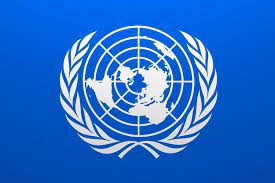Ms. Mohammed spoke with young environmental and climate activists there as part of her two-day mission to the Central American country, which concluded on Tuesday.
“The United Nations belongs to you, young people,” she said.
“We must connect the climate negotiations with what is happening in the world. We have to fight for the strengthening of democracy, and participate in the votes, because ultimately democracy is also climate action.”
During their exchange, the activists expressed concerns about the impacts of climate change on the most excluded populations.
Youth speaking up
They assured the UN’s second-in-command that young people are increasingly raising their voices and mobilizing more to demand that countries comply with international agreements.
“We must be more ambitious, move faster for the environment and the climate, but we also need the world to recognize, value, and give the space that young people deserve in climate negotiations,” said Sara Cognuck, one of the young environmental leaders.
Ms. Mohammed urged young people to strengthen how they organize around issues, and to identify ways to fund their causes, to ensure that their voices, as well as their actions, reach every corner of the globe.
For the UN, climate change is the defining issue of our time, and it figured prominently in her discussions with Costa Rican officials, civil society and others.
Promoting joint cooperation
On Monday, Ms. Mohammed met with President Carlos Alvarado and Vice President, Epsy Campbell to identify and promote joint cooperation on environmental protection, climate mitigation and adaption, and also the financing for development that developing countries require.
They further examined how to strengthen actions to serve the most vulnerable populations, such as people of African descent, women, indigenous peoples, migrants, asylum seekers, children and adolescents.
The Deputy Secretary-General’s visit also highlighted Costa Rica’s leadership in mobilizing development finance for middle-income countries, and achieving debt relief, especially in the context of the COVID-19 pandemic.
Scale up solutions
The crisis is putting global efforts to achieve the Sustainable Development Goals (SDGs) at risk. Ms. Mohammed stressed the need for urgent action and ambition.
“We need to go to scale with solutions and overcome the obstacles that lie ahead. The UN is committed to accompanying Costa Rica on this journey to fulfill the promise of the SDGs,” she said.
Ms. Mohammed also discussed Costa Rica’s proposal for a COVID-19 Economic Relief Fund (CFE) and similar initiatives to expand fiscal space there and in other middle-income countries, for green, inclusive and resilient recovery.
Talks also covered innovative financing tools, including so-called “blue” and “green” bonds, and aligning investments in strategic sectors such as social protection and “green” jobs to bolster future resilience.
Linking decarbonization efforts to a just transition was also a focus ahead of the next UN climate change conference, COP27, due to take place in Cairo next year.
Costa Rica taking action
During her mission, Ms. Mohammed also held several meetings with government ministers and leaders from the Central Bank and in areas such as public finance and the private sector, to support the country in its efforts to achieve the SDGs.
“Costa Rica has taken action to address climate change and to strengthen clean energy production with almost all of its electricity coming from renewable sources. It has also managed to protect its right to biodiversity and reverse deforestation, to the point that today 59 per cent of its territory is covered by forests,” said Ms. Mohammed.
She described the country as “an example to show the region and the world that under no circumstances can we abandon our objectives and agreements on climate and sustainable development.”
Meeting local communities
Ms. Mohammed stopped at Las Pailas geothermal plant in Liberia Guanacaste, where she observed Costa Rica’s progress in securing a renewable electricity matrix that currently covers more than 99 per cent of its population.
She also visited women community leaders from Cuajiniquil, Guanacaste, working to preserve mangrove forests, not only as a means of environmental protection but also to ensure sustainable livelihoods.
At the 25 de Julio community in Hatillo de San José, Ms. Mohammed met with migrants and asylum seekers, and to show support for Costa Rica’s efforts towards their inclusion.
She also visited Freedom Park, located in the community of Desamparados, a space focused on local inclusion and environmental protection. It was there that she had the dialogue with young environmentalists.
UN Garden
Ms. Mohammed also planted a tree, inaugurating the UN Garden at the park, and thus affirming commitment to young people and vulnerable communities in Costa Rica and around the world.
The Deputy Secretary finally highlighted the UN’s commitment to jointly organize with Costa Rica the Sustainable Development Forum in March.
The event will bring together leaders from the region, the private sector and civil society, to identify innovative responses to accelerate the 2030 Agenda in Latin America and the Caribbean. (https://news.un.org/en/story/2021/12/1108542)




































